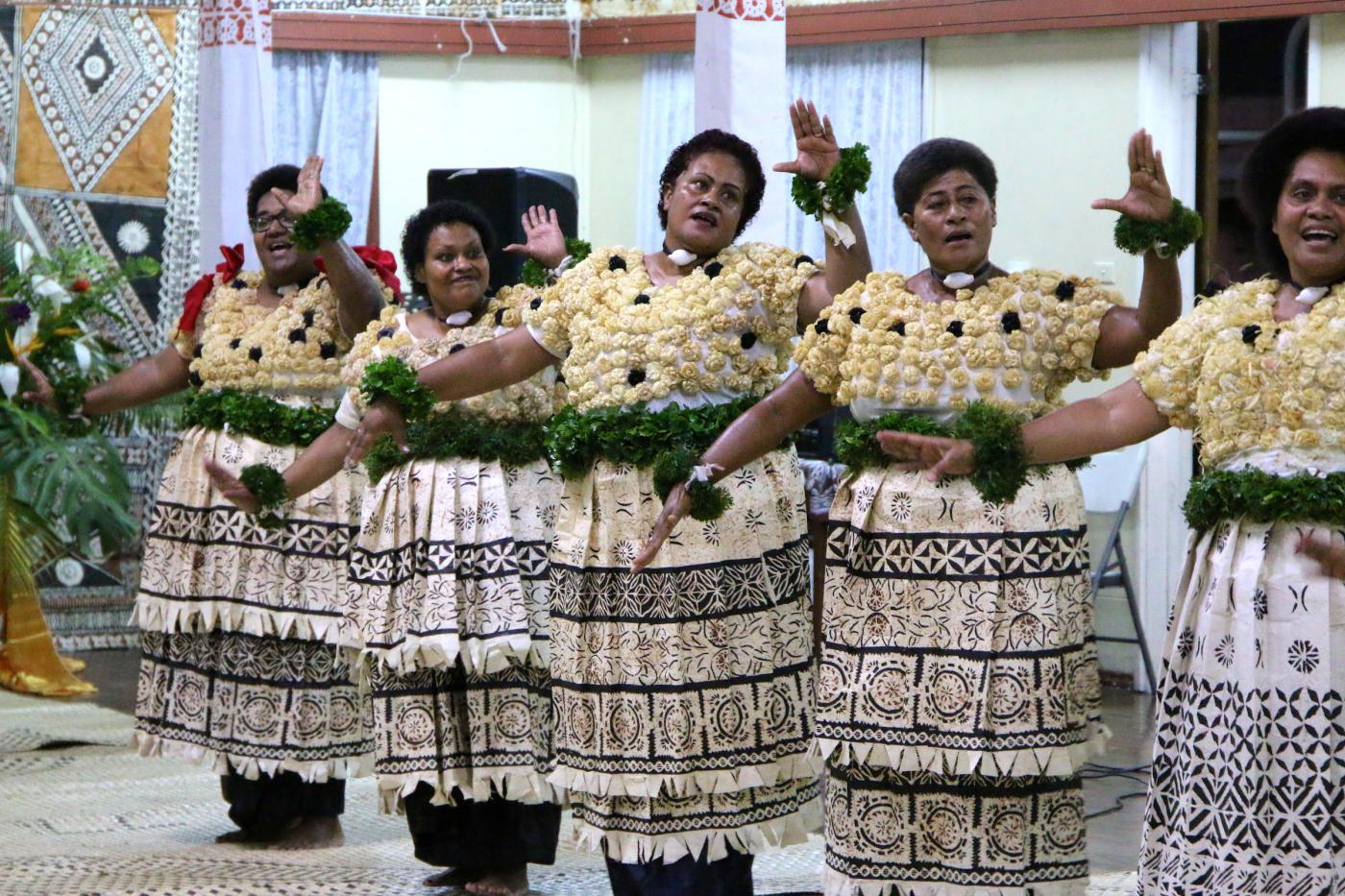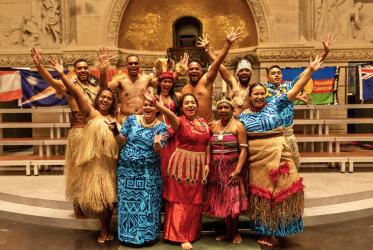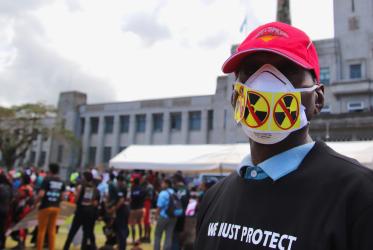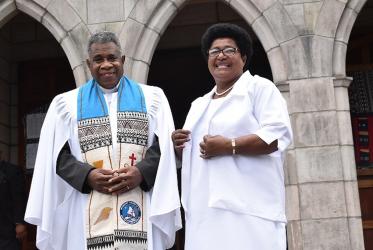Rev. Dr Mele’ana Puloka, WCC president for the Pacific who was moderating the Pacific regional meeting, shared that “we have intercessory prayer groups daily, focusing on four topics: that our nation will not be affected by any decision which will not be helpful or be in line with what God has planned for Tonga and the wider Pacific region, we pray for our youth as we realize how important it is for the church to support and pray for them, we pray for the baptism of the Holy Spirit and protection from the virus.”
“One positive outcome of the pandemic for some young people is that we have taken this time as a chance to look to God to provide for the different difficulties and struggles, strengthen family bonds, more time for families to pray together and have family devotion. Leaders of the church have used technology as well to reach out to young people and the bond of the church members has been strengthened through this,” said Deaconess Merenaisi Moapa from the Methodist Church in Fiji and Rotuma.
“In spite of the challenges, the Regional Ecumenical Youth Council was launched in May, bringing together a diverse group of youth from the Pacific region, where they have dialogue about key issues, partnering with youth movements to strategize on how to tackle their concerns, so that youth can contribute to the discussions that concern them,” said Rev. James Bhagwan, general secretary, Pacific Conference of Churches.
Participants also reflected on the challenges the churches are facing of isolation, gender-based violence, unemployment and pressure to turn to extractive industries, as both mining on the land and deep-sea mining continue to be the biggest problems. There are concerns that climate justice is being pushed to the side as focus remains on the return to “normal” in the context of the pandemic.
“There is ongoing work of climate and disaster risk reduction in the Solomons. Gender theology and churches are working on safe church policies and whole church engagement on gender-based violence,” shared Tagolyn Kabekabe, representative from the Church of Melanesia.
“Along with the legacy of nuclear testing in our region, Japan’s decision to dump their nuclear waste into the Pacific waters is also another concerning issue. Churches, civil society and regional bodies have called on the Japanese government to ask them to reconsider this decision,” Bhagwan said. “There are of course ongoing human rights issues in West Papua which continue to be a challenge as we raise our voices for justice, peace and self-determination for the people of Papua, Kanaky (New Caledonia) and Maohi (French Polynesia),” he added.
Bhagwan concluded that “nevertheless, we endeavor to focus on continuing to be pastoral, practical, vigilant and prophetic, by working with governments and other good will agencies to serve the community as we continue to raise our voices for justice and peace while journeying towards the WCC 11th Assembly.”
Learn more about the Pacific Conference of Churches





